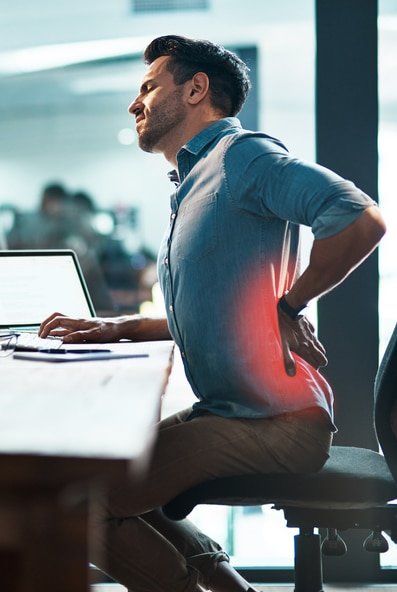
You’ve had recurring episodes of low back pain for the last few years; it usually happens after doing a lot of house-work/gardening or in the gym when you do certain exercises. Or maybe you just have this ongoing niggle or tightness in your back that stops you doing what you love.
These stories will hit home with a lot of people as low back pain is ever so common. About 80% of adults experience low back pain at some point in their lifetimes.
In several surveys, approximately 25% of people reported experiencing low back pain in the past 3 months. Those figures are extremely high!
Low back pain can be extremely painful; it can also go on for long periods for some people.
Extreme or prolonged pain can make people wonder what is causing the pain. “There must be something badly damaged, my back is so painful (or sore for weeks)”.
This mind-set often convinces people they need to investigate what is wrong with their back by getting a scan. MRIs are quite common when it comes to low back pain.
MRI machines are amazing technology; the ability to get clear images of tissues inside the body is extremely valuable and very tempting for everyone involved.
The use of MRIs can shine when they’re actually needed and done well.
But the sad truth is that they’re not needed anywhere near as much as they’re actually used, and they’re especially not needed for most low back pain.
Someone with low back pain should only be sent for an MRI if they have severe/progressive nerve symptoms, sudden back pain with trauma (from a fall etc.) or suspected serious medical conditions or fever.
Luckily, less than 5% of back pain is serious/severe – this number is often closer to 1%. So, in theory around 1% of people with back pain would only need to be sent for an MRI.
Getting an inappropriate or premature MRI is not just useless but it can actually be harmful.
As most low back MRI results will show up some sort of ‘damage’ (also known as ‘normal age-related changes’), this can lead to people thinking this ‘damage’ is the cause of their pain.
This is often not the case.
Back pain is extremely complex. A lot of factors can contribute to why you are experiencing back pain, such as tight muscles/joints, weak muscles, poor or insufficient movement as well as other non-mechanical aspects like nutrition and some psychological factors.
All of these factors need to be addressed before you can get out of pain and back to doing what you want to be doing.
When you come to APC we will assess all of these potential contributors to the pain you are having.
We will also screen you to see if you really do need to be sent for an MRI initially or at a later date.
So, the answer to the question? It is extremely unlikely that you need an MRI. Physio should always be the first stop.
Please see the video here to listen to us talk about low back pain and MRIs.
Give us a call on 02535015 today to talk through any questions and concerns you may have
Thanks for reading!